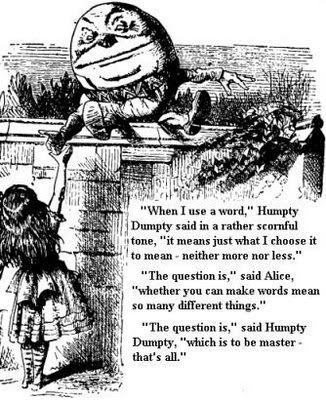I offered an illustration of how COSLA's response to government proposals on specific equality duties was, on the one hand, reactionary and defensive, and on the other hand, how the COSLA response was at odds with quite a few responses submitted by individual Councils.
I did offer COSLA a chance back then to explain just how their bell could toll for 32 Councils when my analysis showed it [their bell] was cracked. Back then I had zero, zilch, nada, nic, rien, faic, lutho and nihilum of an answer. You'll be flabbergasted to know that remains the case.
As well as offering COSLA the chance to explain their cracked bell, I offered my analysis and findings to Nicola Sturgeon, Cabinet Secretary in the glorious government of Scotland and who occasionally can be reminded she has responsibility for equalities. I suggested:
I have conducted a simple analysis of what the 22 councils submitted directly to government. Amongst a number of patterns and trends, one strong pattern which emerges is that generally speaking Councils are in favour of using a template in local government for reporting on employment data so that comparison and benchmarking can take place. COSLA counsels against comparisons being made.
In broad terms there appears, as I have suggested, to be a dislocation between what COSLA is saying on behalf of Councils and what Councils themselves are saying direct to government. When your officials are analysing the response to the consultation on the regulations for the specific duties, it thus begs the question – who is COSLA speaking for and just how much weight is government attaching to the COSLA submission? I look forward to your thoughts on this.Clear? Straightforward? I thought so. Nicola's answer?
"The Scottish Government has not sought clarification on the provenance of the COSLA response or any other response. If you would like to know more about how COSLA operates and who it speaks for you may wish to contact COSLA directly."A big kiss-off from the Cabinet Secretary.
 |
| a big kiss-off from the Cabinet Secretary |
This would add accountability, improve transparency, reduce the democratic deficit. Good things to reach for ? I offered Nicola the case that :
In a wider context this ....... does ...... reveal the need for some modification and modernisation of the government’s routine approach to consultations. I would urge consideration being given to the profiling of respondents being expanded slightly beyond its present form to capture some measurable sense of provenance of the responses being submitted.
For instance, has the Board or governing body of an organisation submitting a response formally signed off that response?
If the organisation is a public body, has the response been the subject of internal and/or external consultation with relevant stakeholders? If so, can some quantification of those actively involved in shaping a response be undertaken and recorded?
If the organisation is a third sector body, has the Board signed it off, has the membership or constituency represented by the body been actively involved in shaping the response and if so to what numerical extent?
By adopting this kind of tweaking to the respondent profiling, it would become clear just who for example COSLA and others were actually speaking for.In return, Nicola's thoughts on ideas for bringing greater transparency to the consultation practice of modern government is :
"You made a number of wider points about consultation arrangements and suggested that we might consider whether it is possible to capture some measure of the provenance of responses submitted to consultations. Thank you for raising these issues. We have no plans at this stage for amending our arrangements."Another big kiss-off from the Cabinet Secretary.
 |
| Another big kiss-off from the Cabinet Secretary |
Tweet to @NicolaSturgeon
You could also tweet COSLA and suggest it needs to be more open about what it does and who it does it for.
Tweet to @COSLA






